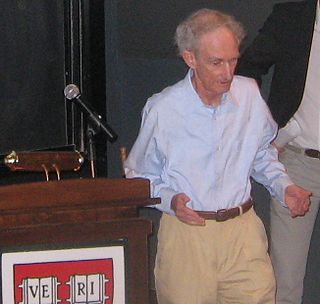A Quote by Jawaharlal Nehru
Democracy is good. I say this because other systems are worse.
Related Quotes
We say then, that Christianity is adapted to the intellect, because its spirit coincides with that of true philosophy; because it removes the incubus of sensuality and low vice; because of the place it gives to truth; because it demands free inquiry; because its mighty truths and systems are brought before the mind in the same way as the truths and systems of nature; because it solves higher problems than nature can; and because it is so communicated as to be adapted to every mind.
There will be some fundamental assumptions which adherents of all the variant systems within the epoch unconsciously presuppose. Such assumptions appear so obvious that people do not know what they are assuming because no other way of putting things has ever occurred to them. With these assumptions a certain limited number of types of philosophic systems are possible, and this group of systems constitutes the philosophy of the epoch.
In such systems, there is unquestioning respect for authority. Faith trumps evidence. But if indeed this is broadly the explanation for how co-operative behaviour has evolved and been maintained in human societies, it could be very bad news. Because although such authoritarian systems seem to be good at preserving social coherence and an orderly society, they are, by the same token, not good at adapting to change.
We judge people in areas where we’re vulnerable to shame, especially picking folks who are doing worse than we’re doing. If I feel good about my parenting, I have no interest in judging other people’s choices. If I feel good about my body, I don’t go around making fun of other people’s weight or appearance. We’re hard on each other because we’re using each other as a launching pad out of our own perceived deficiency.








































